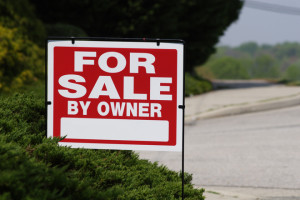 A Gathering of Experts: When are most residential properties listed on the market?
A Gathering of Experts: When are most residential properties listed on the market?
Fred Wehba: We usually see a rise in home listings in the spring when weather warms up.
A Gathering of Experts: How is today’s real estate market as compared to the big bubble burst of 2007?
Fred Wehba: I think we’ve pretty well recovered, with some places even hitting record high prices.
A Gathering of Experts: Do you think we are being set up for disaster again?
Fred Wehba: In some areas, possibly. However, most cities have seen steady gains of around 5% per year which is sustainable.
A Gathering of Experts: Do lower mortgage rates encourage buyers?
Fred Wehba: Absolutely and possibly more than any other factor.
A Gathering of Experts: But these rates can change so quickly…
Fred Wehba: That’s true. My best advice would be to lock in your rate when it’s at a comfortable number.
A Gathering of Experts: What is the difference between a buyer’s market and a seller’s market?
Fred Wehba: A seller’s’ market means there are fewer homes and they are selling for more money. A buyers’ market is just the opposite.
A Gathering of Experts: What’s considered a healthy supply-to-demand ratio in the real estate market?
Fred Wehba: Specifically for residential, a six month supply is about right.
A Gathering of Experts: What sells faster, turnkey properties or those that need work?
Fred Wehba: Move in ready homes are more popular for buyers who want to live on their property.
A Gathering of Experts: Are investors still buying the fixer uppers?
Fred Wehba: Always.
A Gathering of Experts: Do higher prices tend to drive investors away?
Fred Wehba: Usually, yes. It’s very difficult to turn a profit if price points are too high.
A Gathering of Experts: It’s been said that it’s cheaper to buy a home than to rent. Is that true?
Fred Wehba: For the most part, yes. Rental homes are in demand, and that drives up price.
A Gathering of Experts: How much more affordable is it to buy?
Fred Wehba: Month-to-month it is literally about half the cost. Mortgage payments average 15% of a buyer’s income as opposed to 30% spent by renters.
A Gathering of Experts: Is credit still nearly impossible to obtain?
Fred Wehba: There are definitely more stringent requirements now, as opposed to before the economic collapse. However, many lenders are loosening up just a bit.
A Gathering of Experts: Are homes getting bigger?
Fred Wehba: Actually, no. Despite a steady economic recovery, the average new home size has dropped from around 2500 ft.² to around 2200 ft.².
A Gathering of Experts: Why do you think that is?
Fred Wehba: The new generation of homebuyer is more ecologically aware than their predecessors.
A Gathering of Experts: Does this affect home design?
Fred Wehba: Absolutely – it’s very difficult to sell a home now that isn’t outfitted with energy efficient appliances, windows, and plumbing.
A Gathering of Experts: Switching gears to commercial real estate. Are the supply levels consistent with residential?
Fred Wehba: Actually, commercial real estate is at an historic low.
A Gathering of Experts: Are investors still squeamish after all the losses the last few years?
Fred Wehba: Many are, yes, but some are hungry for risk.
A Gathering of Experts: Do you have any thoughts about how investors decide what in what area they want to spend?
Fred Wehba: That’s pretty simple, really. Investors follow jobs and people. The more an area is expanding, the more likely it is there will be a need for housing and commercial operations.

 C. Frederick Wehba is recognized in the real estate community as one of the most trusted advisors and leaders in the field. From his home base in Los Angeles, California, C. Frederick Wehba has made a considerable difference in the lives of his tenants, as well as his fellow community members. In this interview with A Gathering of Experts, C. Frederick Wehba describes his humble beginnings in Crowell, Texas, and how these experiences informed his later work.
C. Frederick Wehba is recognized in the real estate community as one of the most trusted advisors and leaders in the field. From his home base in Los Angeles, California, C. Frederick Wehba has made a considerable difference in the lives of his tenants, as well as his fellow community members. In this interview with A Gathering of Experts, C. Frederick Wehba describes his humble beginnings in Crowell, Texas, and how these experiences informed his later work. As top investors accumulate further knowledge about the real estate market, one message rings loud and clear. According to BentleyForbes, the uncertain nature of the U.S. economy requires a skilled approach to investment matters. BentleyForbes and its sterling team of professionals understand viable alternatives that can ameliorate future risk and pave the way for greater successes.
As top investors accumulate further knowledge about the real estate market, one message rings loud and clear. According to BentleyForbes, the uncertain nature of the U.S. economy requires a skilled approach to investment matters. BentleyForbes and its sterling team of professionals understand viable alternatives that can ameliorate future risk and pave the way for greater successes.